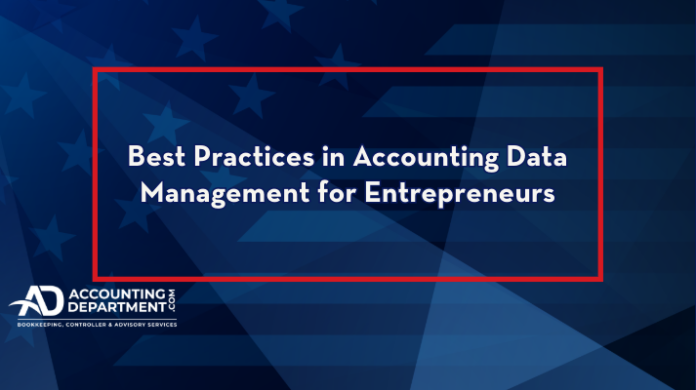Effective accounting data management isn’t just about tidy spreadsheets and balancing your books. It’s about safeguarding your business’s financial health while ensuring seamless operations.
For entrepreneurs, accountants, and SMB owners, understanding and implementing best practices in accounting data management is critical. Neglecting this area can result in data loss, financial inaccuracies, and even security breaches.
This guide explores the essentials of accounting data management, offering actionable tips and real-world examples to help protect your business and set it up for success.
The Basics of Accounting Data Management
Accounting data management refers to how businesses handle, store, organize, and protect their financial data. This data serves as the backbone of sound decision-making, compliance, and future planning for any organization. Proper management ensures that financial records are accurate, secure, and accessible whenever needed.
Key Accounting Data to Prioritize:
- Financial Transactions – Payments, invoices, and receipts should always be documented and retrievable.
- Tax Records – Reports, deductions, and filings must be maintained and comply with government regulations.
- Payroll Data – Salaries, deductions, benefits, and employee information are critical pieces of accounting data.
- Expense and Budget Reports – Comprehensive tracking of fixed and variable costs aids in financial stability and growth.
Why Data Management is Important
- Accuracy – Prevent errors that could affect financial reporting and planning.
- Compliance – Meet tax and regulatory requirements without scrambling at the last minute.
- Decision-Making – Better data means better business decisions. Without organized data, long-term planning is risky.
- Cost Prevention – Data breaches or corrupt files can lead to expensive fines or business delays.
Best Practices for Protecting Your Financial Data
Whether you’re running a small business or managing finances for a multi-entity company, the following best practices will help safeguard your financial data:
1. Regularly Back Up Your Financial Data
Data loss can happen unexpectedly—due to technical failures, cyberattacks, or human error. Ensure that you back up your financial data at regular intervals to prevent losing critical information. Use cloud-based systems or external storage devices for redundancy.
Pro Tip: Use automated backup systems to ensure nothing slips through the cracks.
2. Choose Software that Integrates Seamlessly
Using accounting software that integrates with your existing tools simplifies your data management process. For example:
- Look for software compatible with payment systems, invoicing tools, and reporting platforms.
- Integration reduces manual data entry, improving accuracy and saving time.
Popular choices like QuickBooks and NetSuite work well for SMB accounting and offer robust integrations with CRM and payroll systems.
3. Maintain Centralized Access to Critical Documents
Avoid disorganized financial records by centralizing all your financial documents. Using a document management system (DMS) ensures that contracts, tax files, and financial transaction histories are in one secure location.
Pro Tip: Establish naming conventions for files to make retrieval easier.
The Role of Automation and Integration
Technology has ushered in tools that make managing accounting data more efficient, accurate, and less hands-on. Automation and integration have become indispensable for businesses that want to save time and reduce human error in data processes.
Advantages of Automation in Accounting
- Improved Accuracy – Automated tools identify discrepancies and minimize manual entry errors.
- Time Savings – Routine tasks like monthly reconciliations, invoice generation, and payment reminders can all be automated.
- Scalability – Growing businesses handling larger financial volumes can scale processes without needing additional manpower.
For example, automated tools like Bill.com streamline accounts payable and receivable by sending alerts for due payments while integrating with platforms like QuickBooks.
Security Measures for Accounting Data
Your accounting data contains sensitive information and is often a target for cyberattacks. Implementing robust security measures is non-negotiable. Below are the most critical steps to secure your financial books.
1. Implement Encryption
Encryption transforms data into unreadable formats unless accessed by authorized credentials. Use industry-standard encryption to secure your financial data both in transit and at rest.
2. Restrict Access with Controls
Ensure that only the necessary stakeholders have access to sensitive accounting information. Use role-based access controls (RBAC) to segregate viewing and editing privileges within your systems.
3. Train Employees on Data Security
Educate your employees on best practices, like identifying phishing emails, securing passwords, and avoiding unsafe downloads. Employees are often the weakest link in cybersecurity, so their awareness is vital.
Pro Tip: Use password managers to maintain strong, diverse passwords across accounts.
Take Action to Protect Your Financial Data
Your accounting data is one of your most valuable resources as a business. Implementing the best practices outlined above—such as regular backups, using automation tools, and strengthening security protocols—can save time, reduce risks, and keep your financials in order.
Ensuring that your data management process is robust and efficient will not only protect your business but also equip you to focus on growing it.


